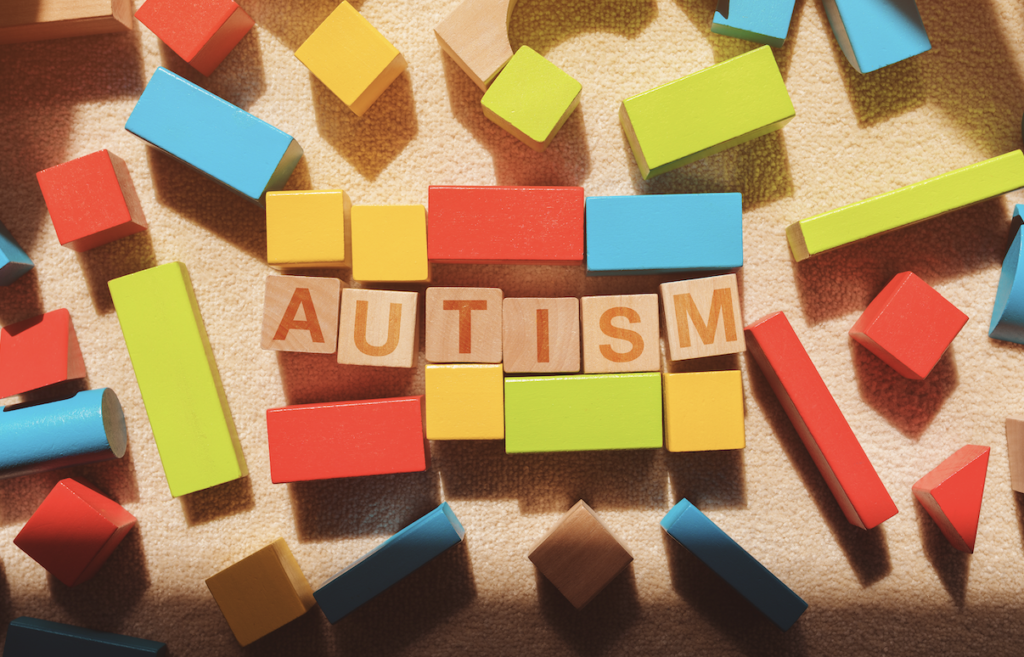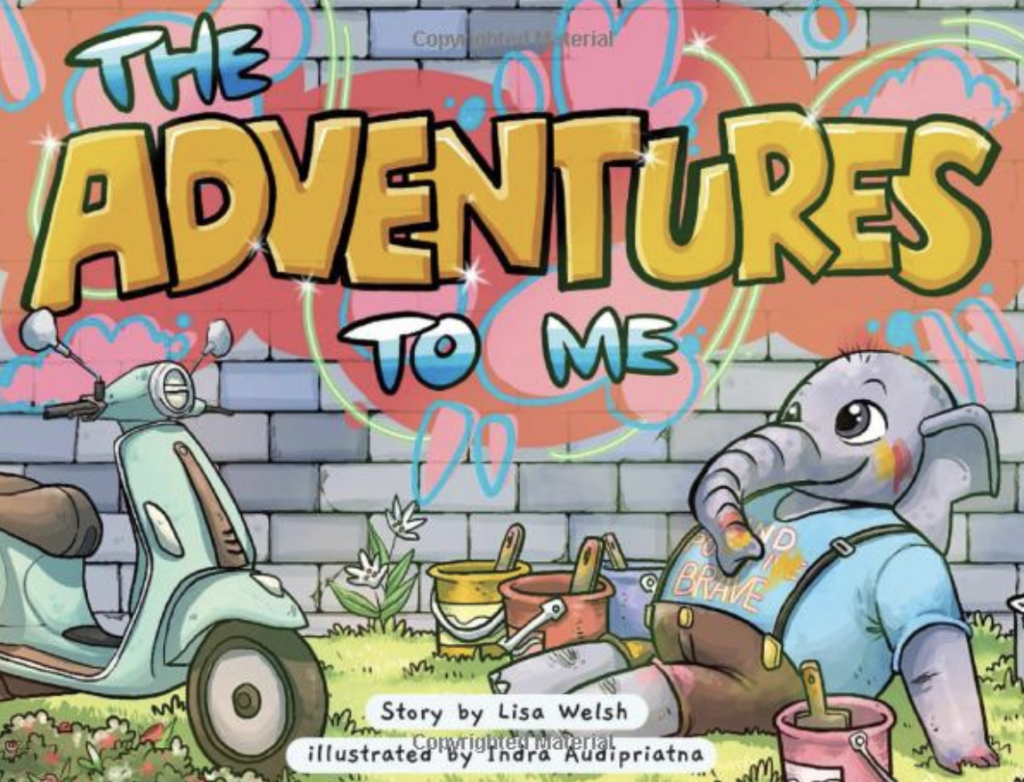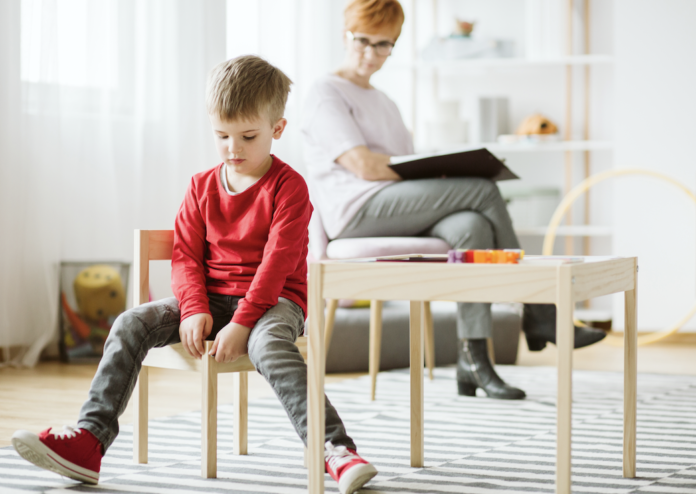I am just going to say it… this process was so confusing and without having any prior knowledge of how to get our son the help he needed, we were so lost. Just like the crazy nurse mom that I am, as soon as I started becoming suspicious that our son needed some type of additional support (we weren’t sure of what or when) I dove on the internet and put my investigator hat on. I hope this helps someone even in the absolute slightest no matter where you are in the process.
First, let me say this very loud and clear…. THIS IS NOT YOUR FAULT. I had such mommy guilt during this process and sometimes catch myself falling into this cycle of blame. Do NOT do it, it doesn’t do anything but spiral your mindset and that isn’t good for anyone.
I thought I did all the right things while pregnant, no lunch meat, cut out caffeine, slept on my side while sleeping, yada, yada… and yet, our son was acting in a way that was atypical of what a neurotypical child would be at this age. For us, Henry hand flapped, would cry when there were loud noises, became incredibly irritable and emotional in large groups, and had such food aversions (like real bad). He walked and talked at the “typical” ages but during circumstances, we knew he needed additional support. Here are the questions we had at the beginning of our journey.
· Who can diagnose Autism and how long does it take to get the diagnosis?
· What happens after the diagnosis?
· What is important to know for a child with Autism?
· What resources are there to help us?

Who can diagnose Autism and how long does it take to get the diagnosis?
First off, a pediatrician cannot diagnose for Autism, they can refer you to a specialist, but they are not able to diagnose. Health care professionals including a developmental pediatrician, pediatric psychiatrist, and some pediatric neurologists and pediatric psychologists.
Length of time to get the diagnosis. This one was the most frustrating part of the process. We waited for what felt like forever! We waited over 2 months and I know many others that had to wait longer. The testing process is not an easy one and unfortunately there are not enough of these qualified specialists around to help make this a speedier process. Mix in our incredibly messed up health care system and insurance processes to follow, and that gets you to an even more delayed timeframe. Be patient and know that this process is cumbersome, but answers will be there soon.
Next, there are levels of Autism, I,II,III. Aspergers was taken out of the DSM V diagnosis manual, so high functioning children are now diagnosed in the spectrum as well.
What happens after the diagnosis?
So, nothing magical happens after diagnosis… There are no fireworks or a literal finish line that you run through but….. the moment you have an answer, whatever it is, that, my friend, is progress. Knowledge is power.
For my husband and myself, we felt like the mountain we had been climbing of trying to get to answers had been scaled. It was a moment of validation that we finally could start looking forward at the next steps. For some, the diagnosis may be unexpected or not what you thought it was. No matter the results, you are now armed with knowledge to help your child. Take it all in and know you are not alone. This moment has happened to other parents, the support is out there, you just have to search. Facebook Autism support groups have been great for us, local and national. The internet can be incredibly helpful.
Next, the diagnosis does not define your child and do not let it be a label. We look at his diagnosis as a life raft, it is there to hold on to when we need additional supports and to be a guiding light to what types of best practices and therapies help support this diagnosis. For example, we wanted to get education elsewhere outside of our school district. We were not happy with our district and how they were providing our son’s education. They were not equipped, trained, or able to provide the frequent breaks Henry needed (he has a lot of wiggles and sensory needs). We had the diagnosis paperwork, we submitted for the Autism scholarship and now do a hybrid model with his therapies and homeschooling with the funds. BOOM! Progress and options.
What is important to know about a child with Autism?
The most important thing to know is that a child with Autism is absolutely amazing! They use areas of their brain that typically developing children and adults cannot even tap into. Don’t you agree? There is crazy amounts of research to tell you otherwise. So, what does that mean? It means they have abilities and experience the world completely differently than others. There are many times when Henry will hear something, see something, or problem solve in a way that I would have otherwise completely overlooked or not paid attention to. He absolutely amazes me every single day. He feels things differently and sees the world in a way that I wish I could experience even a fraction of the way he does.
What are the resources to reference that help a child with Autism?
As I mentioned before, YOU ARE NOT ALONE. The prevalence of Autism has grown significantly with now, …… Know that there are a lot of resources and my biggest suggestion to you to is to continue to research. Look locally at what there is to offer and nationally too.
Education—knowledge is power! Educate yourselves every chance you get about Autism. There is much to learn and there is not such a thing of too much information. We took a class through the Integrations Treatment Center that practices the S.U.C.C.E.S.S. APPROACH to Autism and really learned a great foundation of understanding. Here is the link! I highly recommend it!
Also, here is a PODCAST from their program—it has been life changing for us and the theory can be applied to anyone on the spectrum or not. It is a holistic approach to understanding the individualized needs of a human in order for them to be the best versions of themselves.
Therapies—this one can be controversial, ABA therapy versus individualized private therapies, but the right answer will be specific to your family and child’s needs and goals. We have immersed Henry in private therapies including occupational, physical, and speech therapies, including feeding therapy as well as music and art therapy. Just know that to find the right combination or the right fit will take time, so just start with the core therapies (ABA or occupational, physical, and speech) and expand from there.
Schooling options— There are options for schooling for a child with Autism. We didn’t know that when Henry was first diagnosed. First, if you choose public school, immediately ask for your child to be assessed for an IEP (Individualized Education Plan). This is vital for any child to get a tailored education plan to their needs, with Autism or other specific needs. To be honest, I feel like every child should have an IEP, no child is the same and therefore their educational needs are different as well.
If you chose to pursue education outside of the public school district and look at private institutions, there are scholarships from the Ohio Department of Education that can assist with these costs once there is the Autism diagnosis. These include the Autism Scholarship and the John Peterson Scholarship. Be cognizant of what the private school accepts for scholarships, some do not honor these unfortunately. However, if a private school does not, they probably are not trained or equipped to give your child the supports and services they require (this happened to us, we learned this the hard way).
National and local resources– Milestones is a great place to start to search for resources nationally as well as locally. You search your state of residence and zip code and resources locally appear. There is also a yearly national conference that they offer, most recently there have been virtual sessions which make it way more easily accessible. The information is found on their website! A great place to start!
Local resources/activities—I started with just researching as much as I possibly could near me. It is amazing when you start researching your local communities such as gymnastics, karate, swimming, fine arts associations, sports clubs, etc., with inclusive programs or specialized programs. We have done everything from hip hop to swimming and parkour and music/art classes. Some things he absolutely loved, and others not so much. You don’t know until you try and your child learns through these experiences. There are also some communities that have monthly support groups at local churches that provide respite sitters to play with your child while you talk with other parents for support. We would have never known these even existed unless we just started looking and asking questions.
The Adventures To Me

Teach your Kids about integrity and values. This beautifully illustrated book empowers kids to be nice and kind human beings. ‘The Adventures To Me ’ is an endearing story of a little elephant on a journey to becoming the best version of “me”.
Equipped with nothing other than a colorful scooter, a backpack, and a map, the little elephant starts their “Adventures to Me”. Along the way, meets new friends of all different backgrounds as encounters challenges, has to make choices, and learns lessons along the way.
The road to discovering the best version of “me” is paved with lessons about confidence, truthfulness, resilience and strength, respect, kindness, responsibility, accepting differences, using what you have, dreaming big, setting goals, and looking ahead towards the future with a positive mindset.
For the little elephant, the journey of life is full of a wealth of possibilities –– ready to embark on a beautiful journey alongside our elephant friend?
Learn about the choices we all make to be good people and explore the great “Adventures To Me”!



















